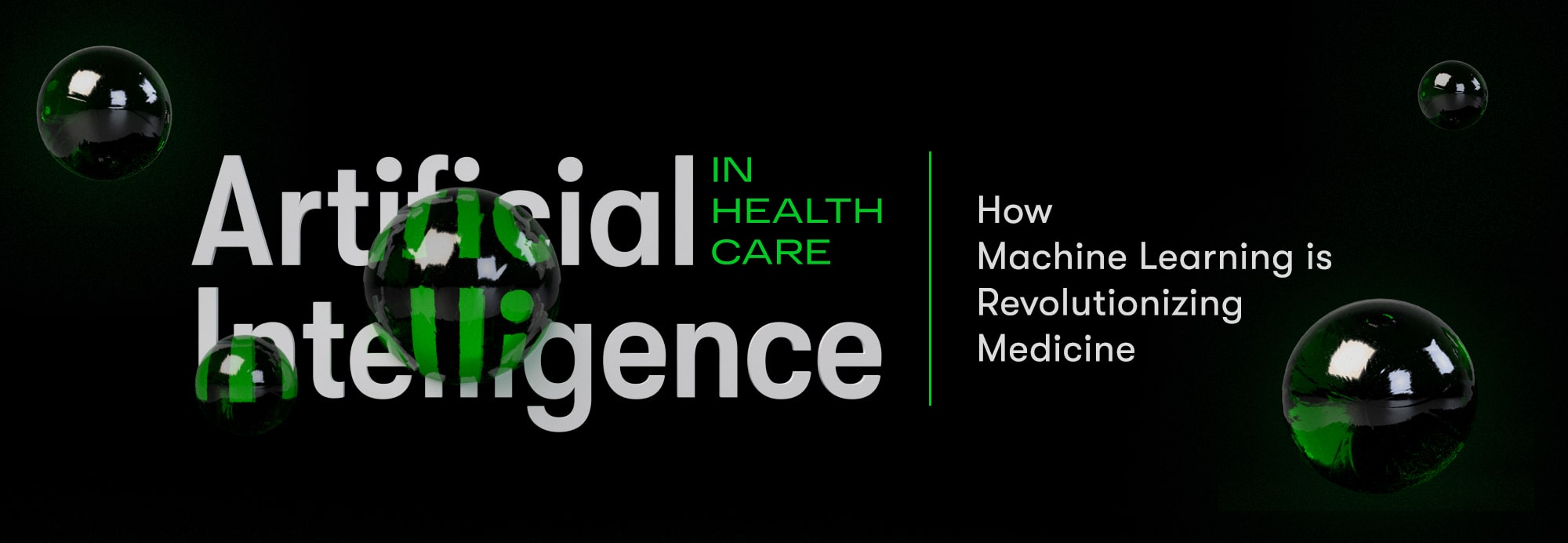AI in Healthcare: How Machine Learning is Revolutionizing Medicine
In recent years, integrating artificial intelligence (AI) and machine learning (ML) in healthcare has revolutionized the medical industry. The immense potential of these technologies has paved the way for groundbreaking advancements, enhancing diagnostics, treatment, and patient care. In this blog article, we will explore the incredible ways AI and ML are shaping the future of medicine and improving healthcare outcomes.
AI-assisted Diagnostics
Machine learning algorithms can analyze vast amounts of medical data, including patient records, lab results, and imaging scans, to detect patterns and identify potential diseases. This facilitates healthcare professionals to make more accurate diagnoses.
Precision Medicine
AI and ML are playing a pivotal role in advancing the field of precision medicine. By leveraging patient-specific data, including genetic information, lifestyle factors, and medical history, AI algorithms can provide personalized treatment plans tailored to individual patients. This targeted approach improves the efficacy of treatments, reduces adverse effects, and ultimately enhances patient well-being.
Drug Discovery and Development
Developing new drugs and treatments traditionally requires extensive research, experimentation, and clinical trials. However, AI and ML algorithms are streamlining this process by analyzing vast scientific literature databases, genetic data, and clinical trials. These technologies can identify potential drug candidates, predict their efficacy, and even design new molecules, significantly accelerating the drug discovery and development timeline.
Predictive Analytics and Early Detection
By identifying potential health risks and enabling early detection of diseases, AI-powered predictive analytics can revolutionize healthcare. Besides, AI algorithms can identify patterns and predict the likelihood of certain conditions by analyzing various data sources, such as patient vitals, genetic markers, lifestyle factors, and environmental data. Therefore, it is essential to allow healthcare providers to intervene earlier, potentially preventing the onset of severe diseases.
Virtual Assistants and Chatbots
Virtual assistants and chatbots are becoming increasingly prevalent in healthcare settings. These AI-powered tools can provide patients with immediate access to information, answer basic medical questions, and even offer initial assessments of symptoms. By alleviating the burden on healthcare professionals, virtual assistants and chatbots improve efficiency, enhance the patient experience, and ensure prompt access to healthcare advice.
Enhanced Medical Imaging
AI and ML algorithms have significantly advanced medical imaging interpretation. These technologies can analyze radiology images, such as X-rays, CT scans, and MRIs, to detect abnormalities, assist in accurate diagnoses, and even predict treatment outcomes. This not only saves time for radiologists but also enhances the accuracy of diagnoses and reduces the chances of human error.

